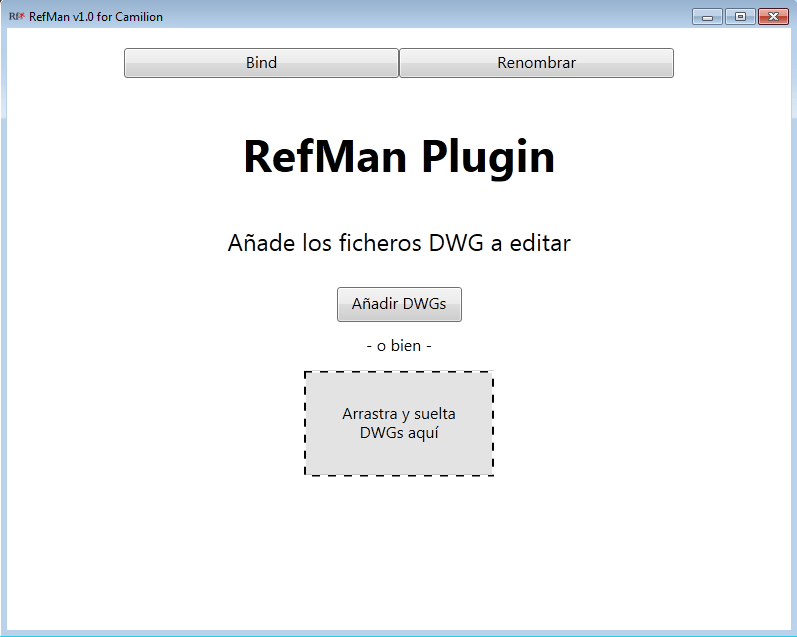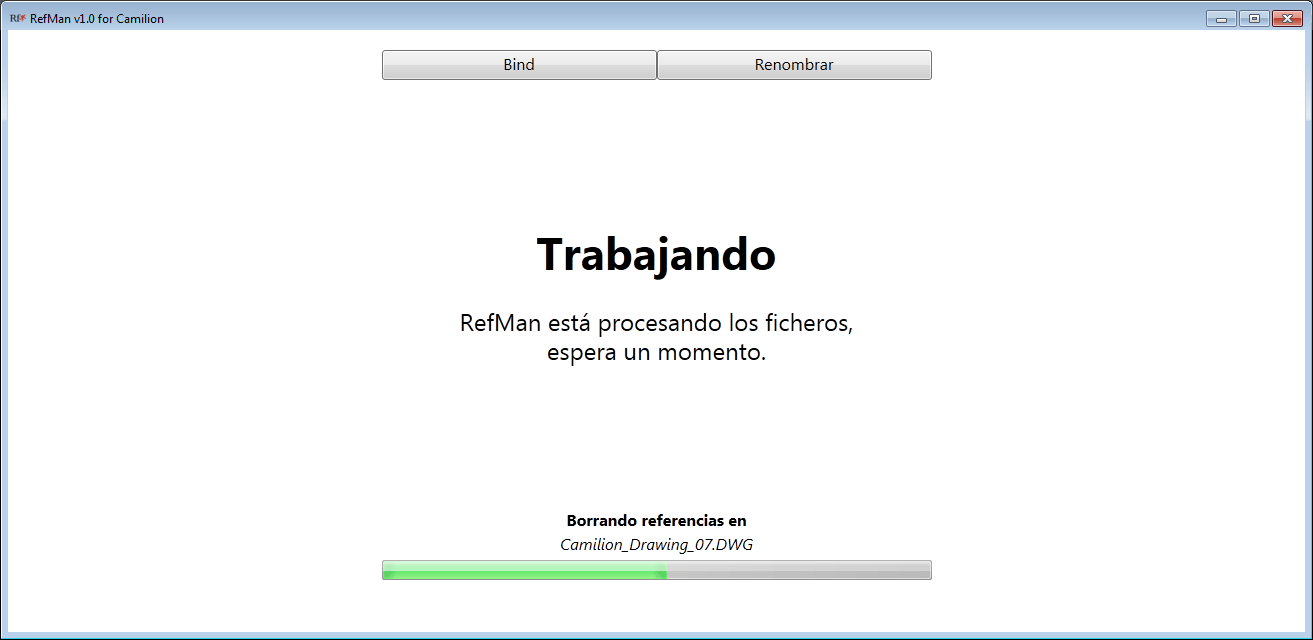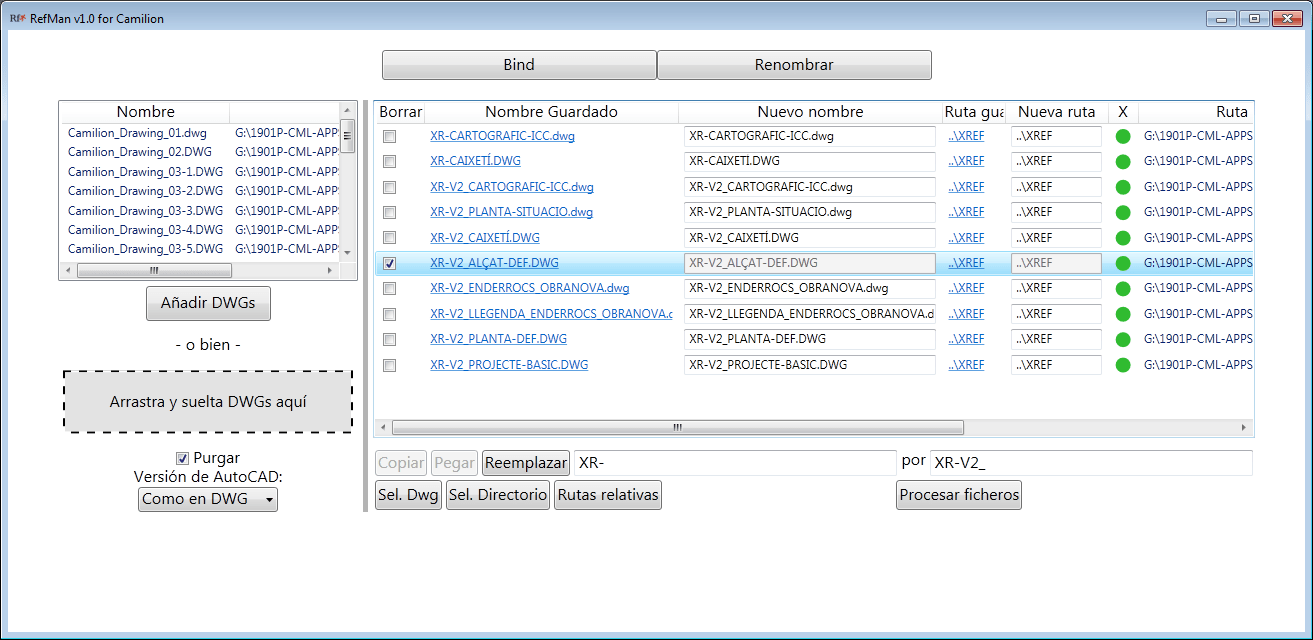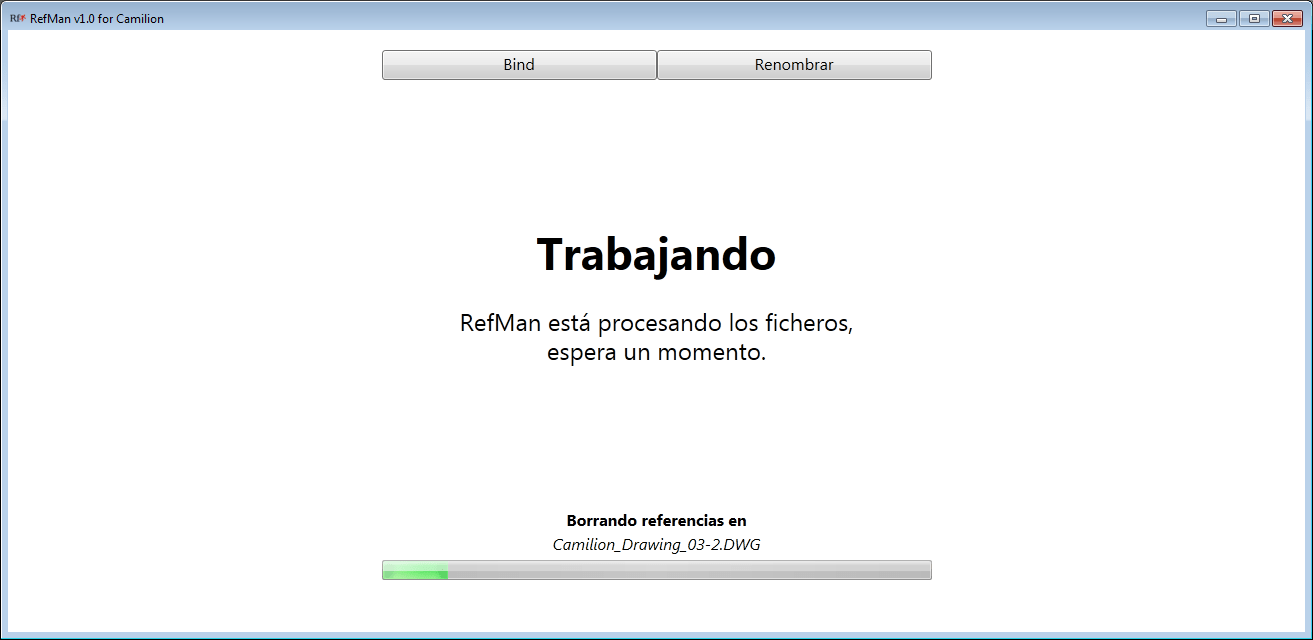When working with Autodesk® AutoCAD® software and External References,
it might happen that things move around and not all DWG® files are updated.
This can happen because of contract requirements of file versioning, merging or splitting data across
different references, adapting a standard to the realities of the project, …
In this entry, we explain how to use RefMan and its quick overview to avoid or
detect and correct early that situation.
As usual, we treat projects as if they had hundreds or a thousand files, but this is also applicable to
projects with a smaller file count.
Purging or cleaning obsolete references with RefMan
Opening RefMan
This is done from an empty drawing in AutoCAD software, by typing REFMAN in the command line interface.
Load files into RefMan
Remember this works with either tenths or hundreds of files.
Loading files into RefMan can be done by either of the following:
- Drag and dropping files
- Clicking the
Add filesbutton
Now RefMan will start loading and analysing the files, meanwhile you can decide about the RefMan operation, in this case it will be Rename.
The Rename interface
In RefMan’s Rename interface, seven columns appear describing names, paths and directories of the external references.
We look for the name of outdated references in the Saved Name column, which is the contents of the loaded drawing files.
It is also interesting to check the X column for any red flags, which indicate that the path to the corresponding external reference is not correct.
If you identify any such obsolete reference, you can activate the corresponding checkbox in the Delete column.
When processing the files, this will ensure that none of the loaded files contains the selected External Reference.
Applying changes
By clicking on Process files, RefMan will start applying any pending changes on all loaded files.
For each modified file, RefMan saves a backup with extension
.RefManBakin the same folder.
If you need to go back to before using RefMan, you can replace your.dwgfiles with the corresponding.RefManBak.
Conclusion
Ensuring this kind of consistency with the usual tools requires a lot of time and attention to detail and given enough time, people and project constraints, it will inevitably fail in ways that are difficult to identify.
By using RefMan you not only save time but also can ensure a better quality end result.



